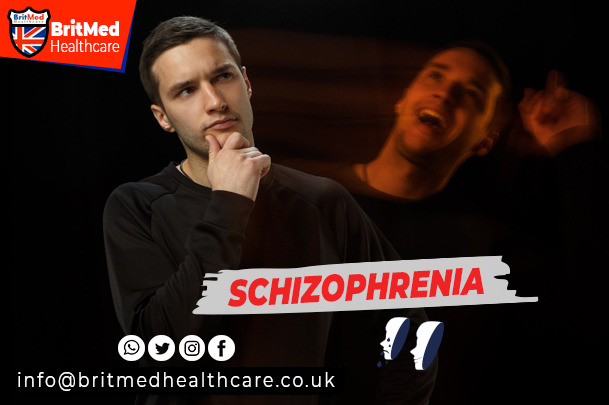Schizophrenia: Etiology, Manifestations, and Therapeutic ApproachesSchizophrenia is a mental illness that distorts a patient’s cognition, affect, and actions. It refers to a disruption in the coherence between thoughts, emotions, and behaviors, resulting in dysfunction in social interactions, relationships, and academic or professional performance. Manifestations of Schizophrenia Schizophrenia symptoms can be categorized into three primary types: positive symptoms, negative symptoms, and cognitive symptoms. Manifestations of a medical condition that are present in an individual, such as hallucinations or delusions. Atypical and exaggerated, positive symptoms encompass the following illustrations: Hallucinations: perceiving auditory or visual stimuli that do not exist in reality Delusions: holding false and irrational beliefs that are not grounded in reality Disorganized thought and speech: experiencing challenges in logical reasoning and effective communication Adverse Symptoms Negative symptoms are defined by an absence of typical functioning. These items are comprised of: Apathy refers to a state of lacking interest or motivation. Affective flatness is characterized by a lack of emotional expression. Social withdrawal refers to the act of avoiding social connection. Cognitive symptoms Cognitive symptoms encompass challenges in cognitive functions, such as thinking, learning, and memory, which may include: • Impaired concentration and attention • Impaired learning and memory • Impaired problem-solving abilities Categories of Schizophrenia Variants The various subcategories of schizophrenia are: • Paranoid type: Primarily characterized by hallucinations and delusions. • Catatonic type: Distinguished by immobility and rigidity. • Undifferentiated type: Marked by the simultaneous presence of many symptoms. • Simple schizophrenia: Characterized by moderate symptoms. Management of Schizophrenia The standard approach for managing schizophrenia typically involves the administration of medication alongside psychotherapy. The objectives of treatment include minimizing symptoms, promoting overall functioning, and improving the individual’s quality of life. The progression of Schizophrenia Schizophrenia can be categorized into various stages of development, which include: – Premorbid stage: Marked by initial indications of decline. -Acute stage: characterized by severe symptoms. – Chronic stage: characterized by the continued presence of symptoms. – Relapse stage: characterized by the recurrence of symptoms following intervention. The topic of discussion is the relationship between marriage and schizophrenia. The symptoms of schizophrenia may impact the patient’s relationships. Therefore, it is recommended to seek professional help in order to overcome such challenges. The correlation between education and schizophrenia. This can significantly impede the individual’s ability to manage their learning activities. Seeking assistance from experts is crucial while dealing with such difficulties. In conclusion Schizophrenia is a severe psychiatric condition that necessitates rigorous treatment and substantial support. It is imperative to seek expert assistance in order to manage the consequences and difficulties caused by this illness. Hashtags: #Schizophrenia #MentalHealth #BritmedHealthcare #NightingaleHospital #TopDoctorsUK #ProfessorAhmedElMissiry #MentalHealthAwareness Websites: For more articles visit Britmed Healthcare https://britmedhealthcare.co.uk/blog/ Do book a Consultation with Professor Ahmed El-Missiry https://www.nightingalehospital.co.uk/specialist/prof-ahmed-elmissiry/ You can also book on Top Doctors UK Contact us on WhatsApp 08009708017Top Doctors: https://www.topdoctors.co.uk/doctor/ahmed-el-missiry |




